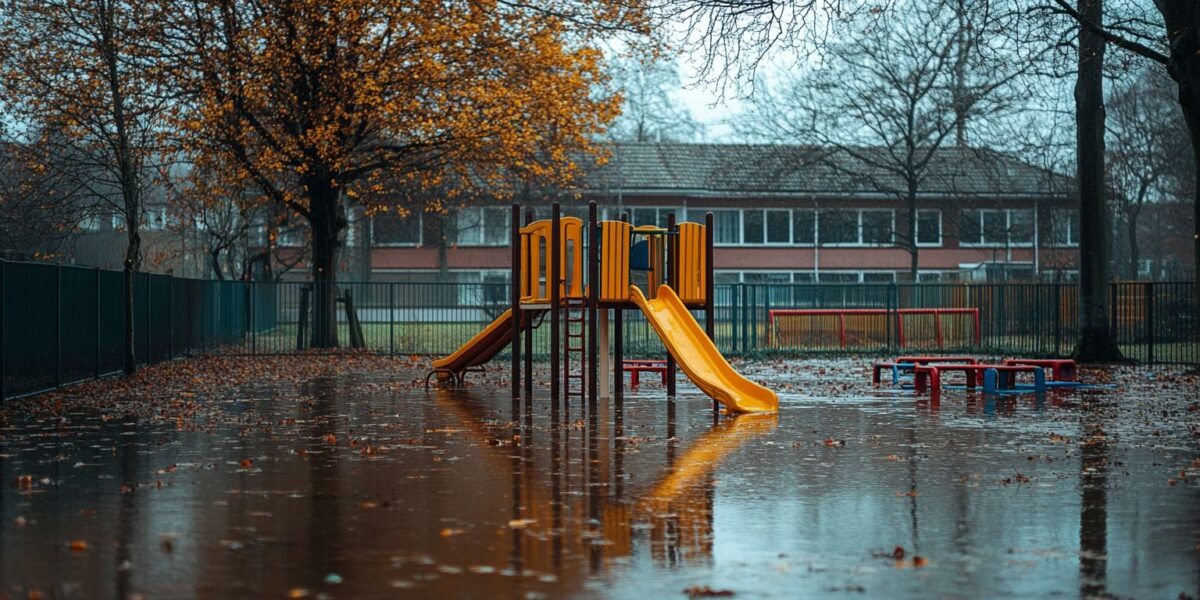Unprecedented School Closures Due to Climate Change
Since 2022, 400 million students globally have encountered school shutdowns caused by severe weather events, as revealed by a recent World Bank report. This statistic underscores the devastating impact of climate change on education systems worldwide, with the hardest-hit being children in low-income regions.
On average, students in poorer countries miss 18 school days annually due to extreme weather, compared to just 2.4 days in wealthier nations. This disparity highlights the urgent need for equitable climate adaptation measures in education.
The report forecasts that a 10-year-old in 2024 will face significantly more climate-related events over their lifetime compared to a child born in 1970. These children will experience three times more floods, five times more droughts, and 36 times more heatwaves.
In countries like Brazil, even when schools remain open, students in economically disadvantaged areas are losing substantial learning time due to climate-induced heat. This results in half a year of education lost for the poorest 50% of municipalities.
Investing in Resilient Education Systems
Despite the clear impact of climate change on education, it remains underfunded in climate finance. Only 1.5% of climate funding is allocated to education, a stark oversight given its importance in building climate resilience.
However, the World Bank’s report suggests that a modest investment of $18.51 per student could significantly mitigate learning losses. This funding could improve classroom environments, construct resilient infrastructure, and train teachers to handle climate challenges.
According to experts, several low-cost interventions can significantly enhance climate resilience in education systems. These include:
- Improving school infrastructure to withstand extreme weather.
- Ensuring learning continuity during climate disruptions.
- Empowering students and teachers as agents of climate action.
These measures can create a more sustainable and liveable planet while ensuring that education continues uninterrupted.
The Drive for Green Skills and Jobs
The need for green skills far exceeds the available supply in many lower and middle-income countries. Students are keen to address the climate crisis but feel unprepared due to a lack of knowledge and relevant skills.
Surveys indicate that 65% of young people believe their future hinges on acquiring green skills, yet 60% report insufficient climate education in schools. The World Bank report shows that each additional year of education boosts climate awareness by 9%.
There is also a significant belief among students that they cannot secure green jobs without STEM skills. The analysis reveals a high demand for green competencies across all levels in low and middle-income countries.
These insights from the report challenge many misconceptions and highlight the critical need for integrating climate education and green skill development in curricula worldwide.
Empowering the Next Generation Through Education
The current generation of students is eager to take action against climate change, but they need the right tools and knowledge. Education systems must evolve to provide these essential skills and opportunities.
Research emphasizes that education is a powerful tool for climate adaptation and mitigation. Yet, the existing systems fall short in equipping young people for a climate-affected world.
Investing in education not only prepares students for future challenges but also leverages their potential as effective agents of change. The benefits of such investments extend beyond the classroom, fostering a resilient and informed society.
By prioritizing education in climate finance, we can ensure that future generations are better prepared to tackle the environmental challenges ahead. The World Bank report makes a compelling case for this critical investment.



Christian
Education should be a top priority in climate finance! Thanks for bringing attention to this issue.
nathan
It’s shocking that poorer countries miss 18 days annually due to weather. How can we reduce this gap?
jasper4
🐱🏍 Does anyone else feel like we’re all in a disaster movie?
LillianSeraphim
Improving infrastructure sounds great, but how long will it take to implement these changes?
victoria5
More heatwaves, floods, and droughts… the future looks bleak for kids 🙁
Audrey
Only $18.51 per student to mitigate learning losses? Seems like a no-brainer investment to me!
Ryan
This is truly alarming. Why isn’t more being done to allocate funds for education in climate finance?
Owen9
Wow, 400 million students affected since 2022! How can we start helping them right now?